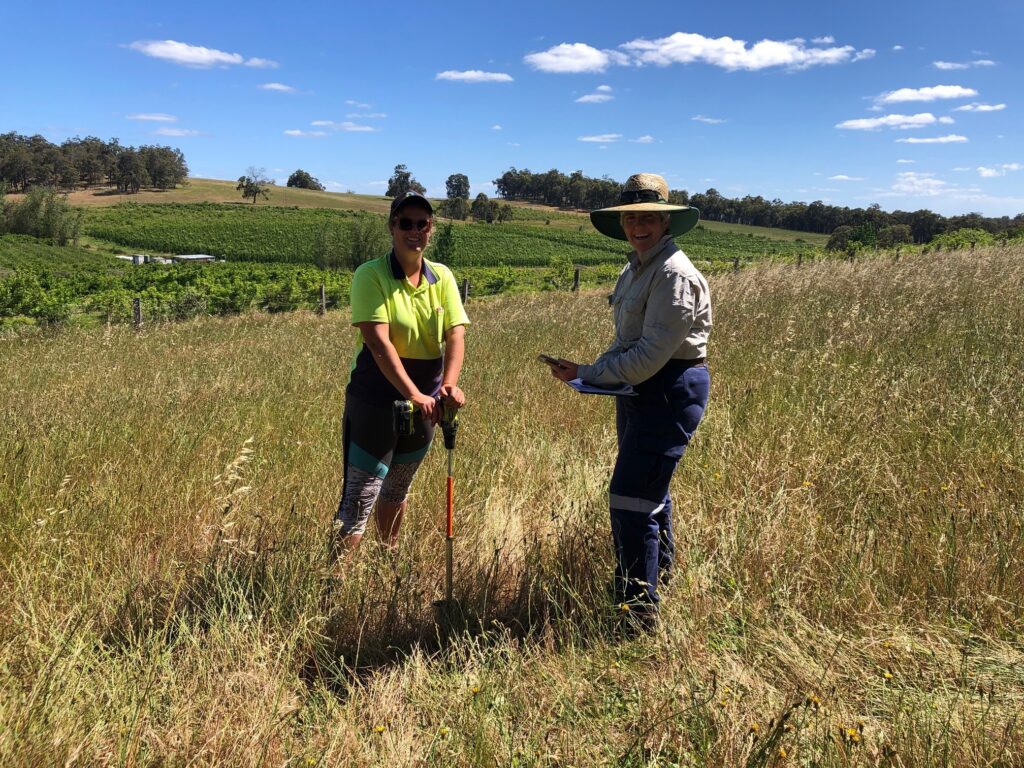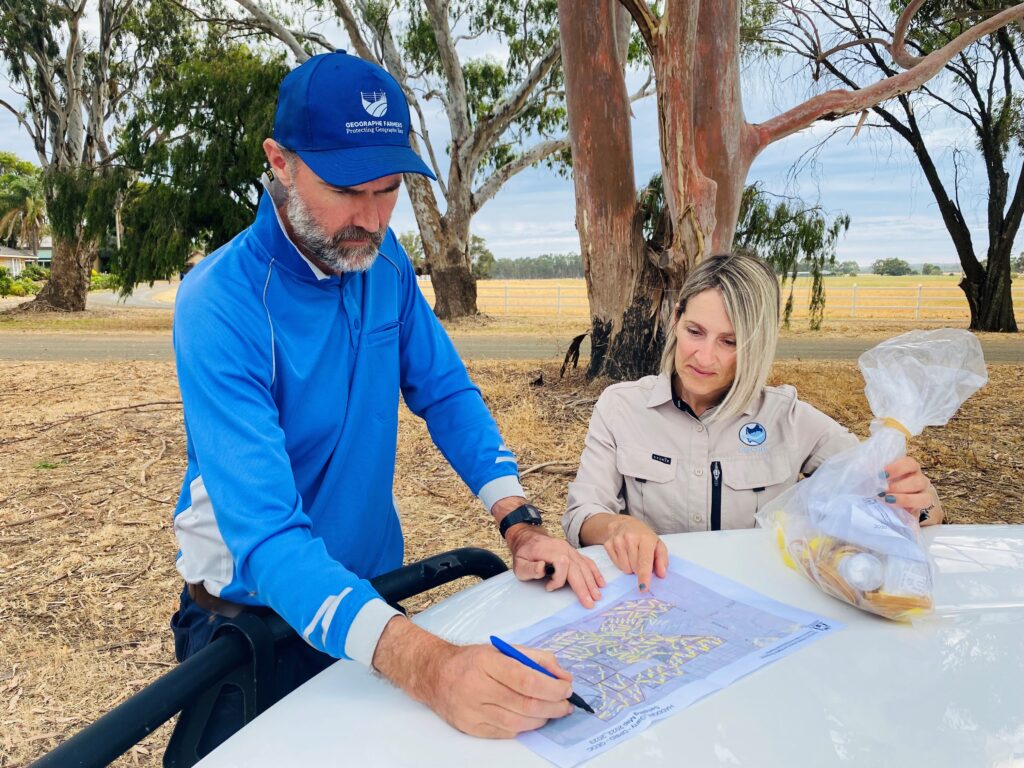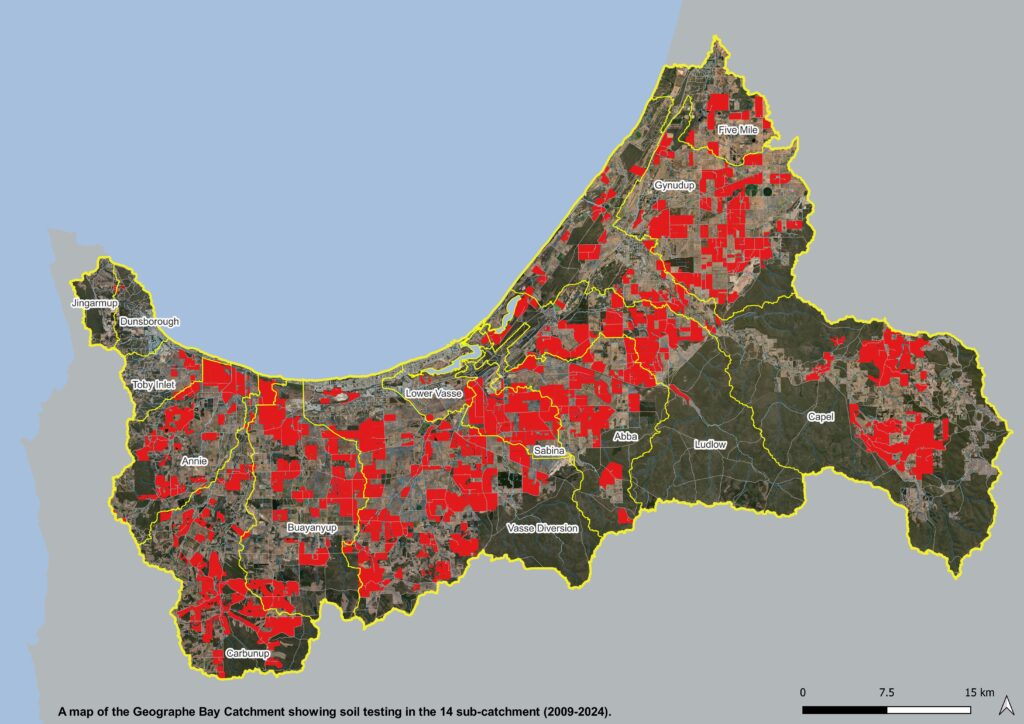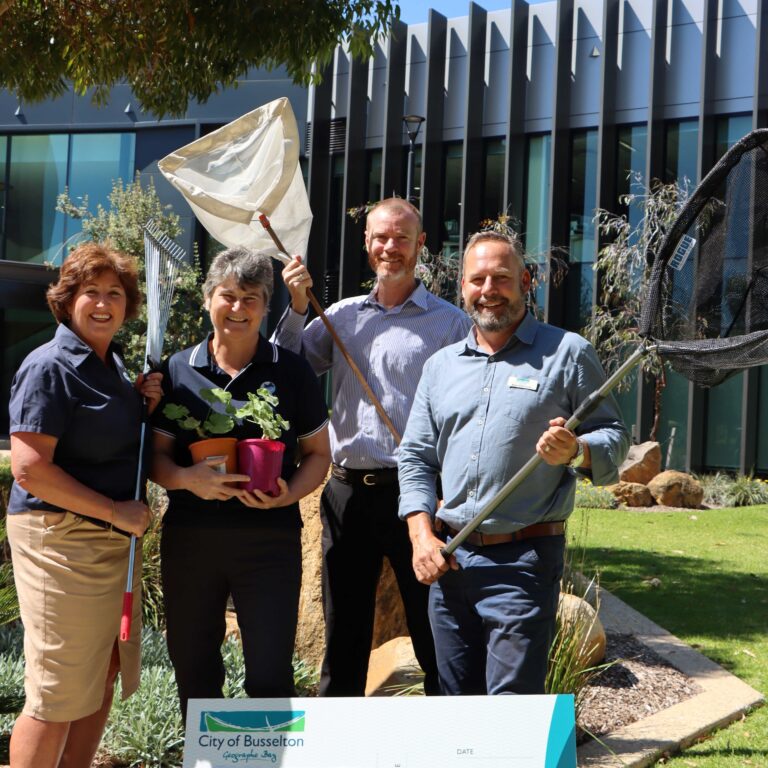Soil Testing
Geographe Soil Testing Program
The Geographe Soil Testing Program aims to support farmers to make informed fertiliser decisions to ensure nutrients stay on the farm and out of waterways and estuaries.
Soil testing has given hundreds of Geographe farmers the confidence to target their fertiliser applications and work towards improving farm productivity, cut unnecessary fertiliser inputs as well as reducing excess entering waterways.
Soil testing reveals the nutrient composition of the soil, how well it retains and impacts nutrient availability, and identifies if deficiencies are present. Testing for phosphorus (P), nitrogen (N), potassium (K), pH, sulphur (S) and phosphorus buffering index (PBI) allows farmers to adapt their fertiliser application, increase efficiency and grow better pastures.
The colour-coded nutrient maps assist farmers to see exactly which paddocks will benefit from changed fertiliser applications. Often the pH of the soil is an inhibiting factor to nutrient uptake, therefore applying lime to increase pH can benefit pasture growth more than fertiliser.
The Geographe Soil Testing Program for 2023/24 is closed. The next round will open in June 2024. To go on our mailing list for further information please email us.
“What we are doing now is really targeting specific paddocks, so the paddock actually gets
what the paddock needs. It’s very expensive to put the wrong fertiliser in the wrong place.”
Elaine, Yoongarillup
“I was actually quite surprised to see how much residual fertiliser was in the property from previous
practices where we just threw out super every year, like we’ve been doing forever…
Every decision now is based on science and results.”
Ross, Chapman Hill












This is a part of the State Government’s Healthy Estuaries WA and Revitalising Geographe Waterways programs, and Soil Wise. Soil Wise is funded by the National Landcare Program Smart Farms Small Grants Initiative – an Australian Government program.




















